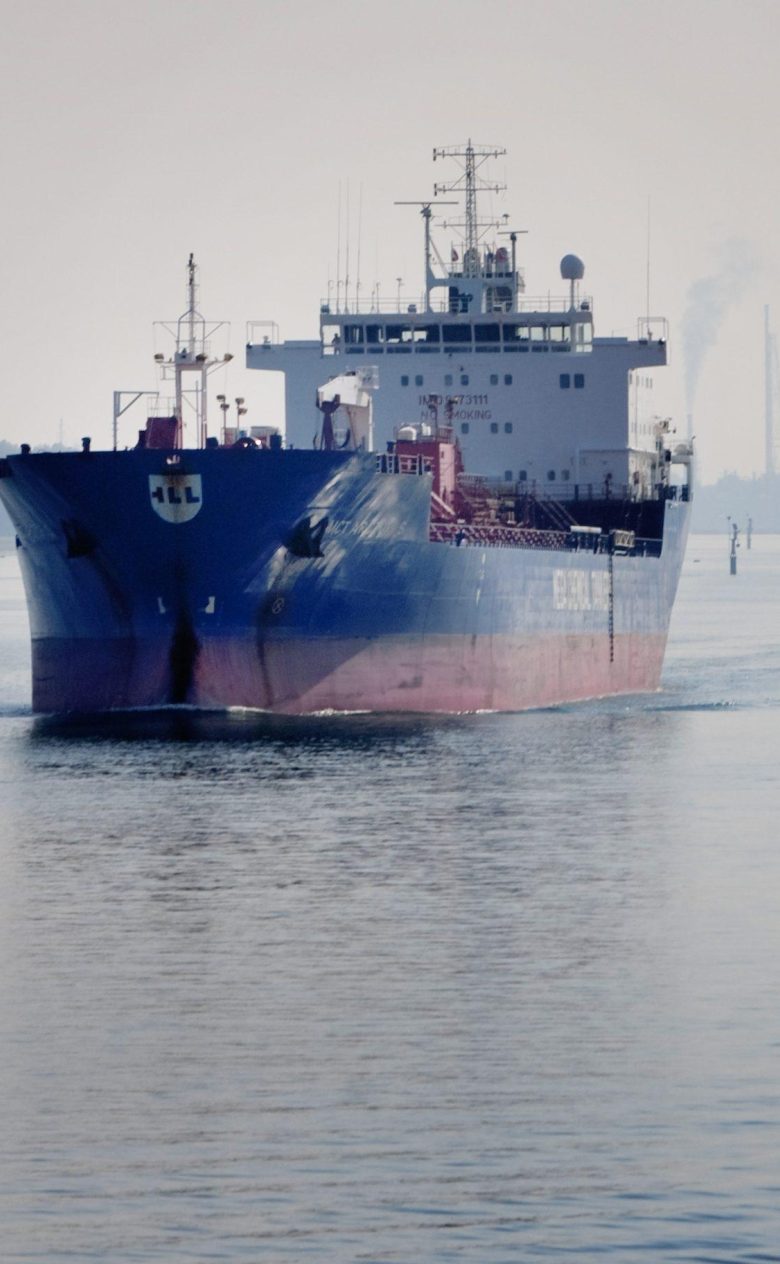Future-resilient ports and waterways
Ports and waterways are facing the challenges of the energy transition, digitalisation, transformations in goods flows and the effects of climate change. These developments are increasingly having an impact on their operations and maintenance. Deltares helps port authorities, waterway managers and the private sector to keep water transport reliable, safe and efficient, even when conditions change.

Understanding the system as the key to future-resilient ports and waterways
We have in-depth systemic knowledge about hydrodynamics, morphology, geo-engineering and ecology. By combining that knowledge, we can provide our clients with tailored advice to make ports, waterways and the supporting infrastructure more efficient, sustainable and resilient.
Examples include studies of sedimentation and dredging strategies for the Port of Rotterdam Authority to maintain access to the port at reasonable costs. Or studies of nautical safety. This involves looking at modifications to port layouts or new mooring technologies for safe and efficient port operations, such as ShoreTension.
Understanding the system is the key to tailored consultancy. With our knowledge, we assess the feasibility of new port developments. We also help our clients to keep existing port and waterway infrastructure operational, even in the context of climate change.
Advanced software and unique laboratory facilities
To promote knowledge development for ports and waterways, we use our software: Delft3D, SWAN and CFD, for example. We develop that software in-house so that we can access new knowledge quickly and use it in projects. In addition, we have unique experimental laboratory facilities.
We have basins and flumes to test port layouts, wave penetration and breakwaters. But we also have a water and soil flume for testing new dredging technologies and a physical and chemical laboratory to determine sediment properties. We use those facilities in both consultancy and knowledge development projects to answer questions from port authorities, waterway managers and the private sector.
Collaboration on innovations and guidelines
We work closely with our clients and knowledge partners to develop new knowledge, innovations and guidelines. In knowledge coalitions, we combine real-world questions with our expertise, software and facilities. In that way, we generate applied knowledge with added value for our partners.
An example of a knowledge coalition of this kind is SmartPort. Working with the Port of Rotterdam Authority, companies in the port and knowledge institutes, we devise innovations to make the port smarter and prepare it for the future. For example, we are working with inland shipping companies on a “Digital Twin” to support inland shipping logistics when water levels on the Rhine are extreme. The Deltares team also collaborated with the WB and Ecoshape to develop a new guideline on Nature-Based Solutions for Ports : An Overview of NBS Implementation in Practice - Opportunities and Challenges.
We share the knowledge developed in open source software, papers, guidelines and training courses. Examples include guidelines for assessing quay walls and scour protection to extend lifespans and save costs and materials.
We help government authorities, consultancy firms, contractors and investors with the cost-efficient, sustainable and future-resilient management and use of ports and waterways. That work includes updating technical guidelines and reducing costs, material consumption and emissions.
Wiebe de Boer
What we offer
- Information and statistics about hydrodynamic conditions (waves, currents, and water levels) in and around ports for safe and efficient port design and operations, including operational forecasts, normal and extreme conditions, and climate projections;
- Analysis and prediction of sedimentation in ports (including access channels) and fairways, and advice about dredging strategies and the beneficial use of sediment;
- The evaluation of port designs in terms of layout, breakwaters, quay walls and locks, as well as the consequences for water quality, ecology and the coast in the vicinity;
- Analyses of climate impacts and adaptation measures for ports and waterways;
- Assessments of water levels and the bed morphology of fairways for safe and reliable inland shipping;
- Advice about the renovation and upgrading of hydraulic infrastructure (“water-based engineering structures”) and the impact on the associated water and transportation networks;
- Analyses of the interactions between hydrological and meteorological conditions, vessels and infrastructure, for example with respect to scour and bed protection alongside quay walls.
Sediment management for accessible ports and waterways
Many ports and waterways are facing decreasing navigation depths due to sedimentation, which can threaten accessibility. At Deltares, we help port authorities, waterway operators and contractors understand the causes of sedimentation and take effective measures. Our experts combine knowledge in hydrodynamics, morphology, ecology and geotechnics, and use advanced software and earth observation techniques. This allows us to simulate both large- and small-scale sediment transport dynamics and advise on cost- and environmentally effective solutions.
Together with our clients and partners, we look for innovative and sustainable solutions, such as Water Injection Dredging (WID) and silt trapping. We also look at Nature-based Solutions, using the forces of nature for effective sediment management. We are also working on concepts for reusing dredged sediment, for example as clay or bricks for dyke reinforcement. Our aim is to help our clients understand natural sediment dynamics and advise them on effective measures to reduce costs and environmental impact.
More on sediment management for accessible ports and waterways
Nautical safety in ports and waterways
Safe nautical operations in ports and waterways require a thorough understanding of water levels, waves and currents. However, crowded waters and more extreme weather conditions pose challenges for the maritime sector. Deltares offers solutions by providing better predictions of water depths, currents and waves. We combine expertise in hydrodynamics and morphology with knowledge of ships and infrastructure to advise managers and users of ports and waterways on safe and efficient nautical operations.
With our in-house developed software and experimental facilities, we advise on port layouts, mooring techniques and lock operations, among other things. With field measurements and scale models, we gather insights that our clients can use to improve their infrastructure and/or operations. In addition, we increasingly use data science to analyse and improve nautical safety.
More about nautical safety in ports and waterways
Climate-resilient ports and waterways
Climate risks for ports and waterways are significant. Disruptions in logistics already occur due to extreme weather and river water levels. Sea level rise is a future factor. Deltares supports ports, policymakers and investors for long-term choices. We translate global climate scenarios into local effects and appropriate adaptation measures to make ports and waterways climate-resilient.
The consequences of climate change are not the same all over the world. Nor is every port or waterway equally vulnerable to the consequences of climate change. Together with our clients, we translate the global climate scenarios of the International Panel on Climate Change (IPCC) into local climate risks for ports and waterways, taking into account uncertainty bands. Using our in-house developed software and tools, we quantify these risks and identify effective adaptation measures. This is how we help prepare ports and waterways for a climate-resilient future.
More about climate-resilient ports and waterways
Resilient inland shipping
Inland shipping is cheaper, more reliable and more environmentally friendly than road transport, but climate change threatens the availability of waterways. Variable water levels can lead to extreme high or low water, causing blockages and limited transport capacity. This poses a challenge to the inland navigation sector, which needs robust and reliable solutions to ensure business continuity.
We support infrastructure managers and the maritime sector with sustainable solutions to make inland navigation more resilient and ensure business continuity during extreme events. Our researchers have decades of experience in the design, construction and improvement of waterways and inland ports. We conduct impact studies of river measures and improve water depth forecasts. Together with the inland navigation sector, we develop tools for better planning and sailing, and work on climate-proof inland waterway transport.
More on making inland shipping more resilient during and after extreme events


